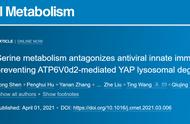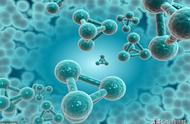中风后抑郁危害认知,磷脂酰丝氨酸抗抑显奇效
【文献解读】
全球近三分之一的中风后患者患有抑郁症,此前有研究表明中风后长期认知功能障碍与抑郁高度相关。2021年2月,发表在《Psychopharmacology》杂志中的一篇文章,探讨了磷脂酰丝氨酸脂质体(PSL)对PSD的潜在抗抑郁作用。结果表明,口服PSL可能通过其抗炎特性改善中风后抑郁。

本试验将小鼠随机分为4组:对照组、PSL组、阴性对照组和ST-PSL组。试验中诱导小鼠脑缺血使之中风,治疗后进行行为评估以及对治疗后小鼠海马组织中炎症因子水平检测。两种行为测试中PSL组和ST-PSL组的静止时间均有明显的减少,表明磷脂酰丝氨酸脂质体有抗抑郁作用。与ST-PSL组相比,PSL治疗组的活神经元数量明显增加。免疫组化分析显示,注射PSL的小鼠海马组织中TNF-α和IL-1β两个炎症因子水平显著降低,表明磷脂酰丝氨酸脂质体具有一定的神经保护作用。

注:磷脂酰丝氨酸脂质体给药对小鼠的抗抑郁作用
综上所述,本研究结果提示磷脂酰丝氨酸可能调节脑缺血后海马体的炎症反应,并能使神经元存活。磷脂酰丝氨酸脂质体减少小鼠的静止时间可能表明,通过下调TNF-α和Il-1β两个炎症因子,减轻了中风引起的抑郁。
【文献节选】
Pharmacological evidence of phosphatidylserine phospholipids suggests that PSL may improve the PSD injuries like neuroinflammation and motor dysfunctionality (Kim et al. 2014; Mozzi et al. 2003). Phosphatidylserine dietary supplements, approved by the FDA, have been recommended for prevention of memory impairment and dysfunction in older people (Glade and Smith 2015). Phosphatidylserine (PS) is known to have antiinflammatory effects in activated macrophages and microglia during externalization of PS in apoptotic cells that exposes to macrophage receptors. Phagocytosis of apoptotic cells results in decrease of microglial secretion of proinflammatory mediators such as TNF-α, I L - 1βwhereas the production of antiinflammatory TGF-β and the lipid mediator PGE2 are increased (De Simone et al. 2004; Hosain et al. 2016). TGF-β and PGE2 inhibit proinflammatory cytokines production through autocrine/paracrine mechanisms in macrophages that ingest apoptotic cells (Fadok et al. 1998).
,













